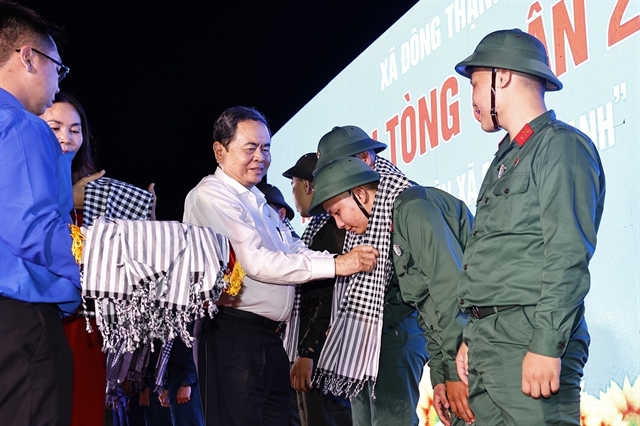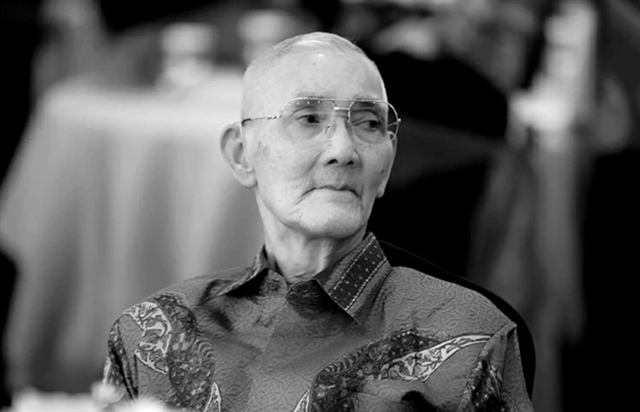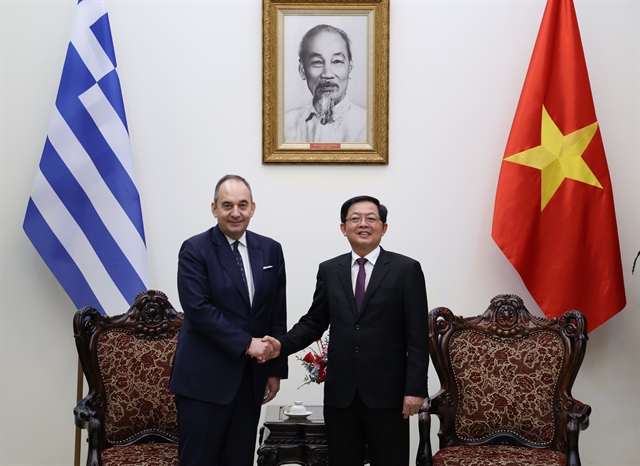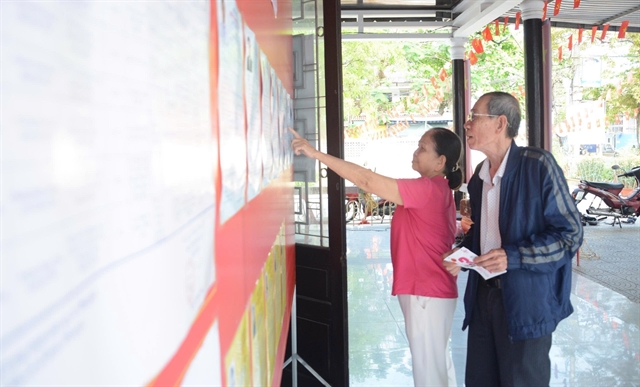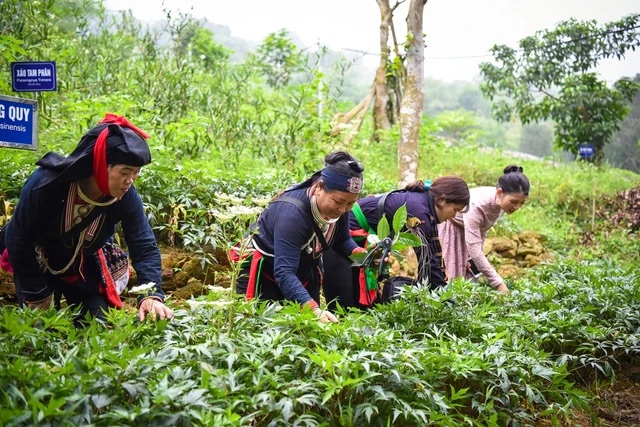 Environment
Environment
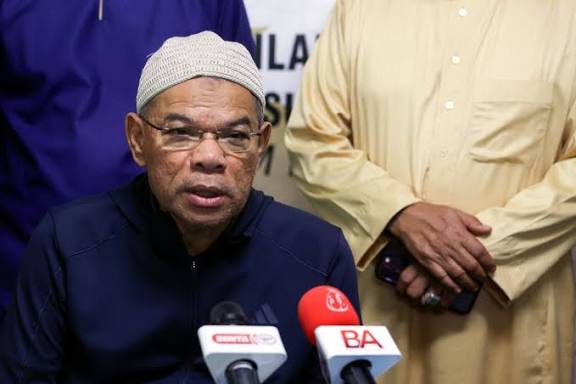
Audit institutions of Asean countries shared their progress, experiences and challenges in environmental auditing that is supposed to ensure sustainable development.
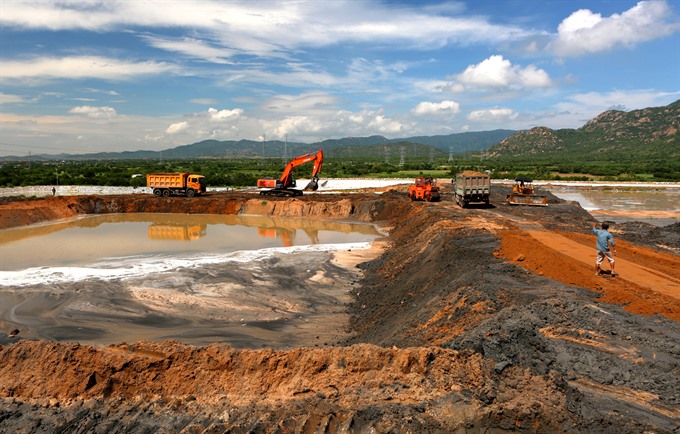 |
| The cinder dumping ground of the Vĩnh Tân thermal power plant in the south-central province of Bình Thuận. — VNA/VNS Photo Ngọc Hà |
HÀ NỘI — Environmental auditing, despite its critical role in the sustainable development of Việt Nam, remains a novel concept in the country, with a standardised process still under construction.
Nguyễn Quang Thành, Deputy Auditor General from the State Audit of Việt Nam (SAV), made the remarks during his presentation of the country report at the 7th symposium on environmental auditing – the main thematic discussion of the 14th assembly of Asian Organisation of Supreme Audit Institutions (ASOSAI) currently underway in Hà Nội.
From 2010 onwards, the SAV has conducted about five environmental audits annually in several areas, including forests, urban drainage, solid waste and low carbon transition, in line with Vietnamese Government’s resolve to not pursue economic gains at the expense of the environment, especially in projects using State funds.
Thành said Việt Nam’s guidelines on environmental auditing are being developed, based on International Organisation of Supreme Audit Institutions (INTOSAI) and ASOSAI guidelines, however, they contain several items that are not compatible with Vietnamese legal documents, hindering the progress and causing difficulties in conducting audits.
The lack of skilled human resources in environmental auditing and low awareness amongst public sector agencies regarding environmental issues and their social obligations are all challenges for the Government.
President of INTOSAI Dr Harib Saeed Al Amimi, in his keynote, said it’s important to realise that social pressure leads to environmental issues, therefore, sustainable development goals must be used to secure each country’s socio-economic goals while upholding environmental integrity.
Leading auditors have also urged different departments of the Government work closely together, as they often pursue different objectives that conflict, with the environment versus development one of the most common struggles.
Technology integration
Malaysian auditors shared that one of their measures to reach for higher effectiveness in environmental auditing is using information technology advancements, for example, utilising remote sensing and geographical information system (GIS) to survey environmental conditions.
Li Feng, representing the China SAI, introduced the latest methods used by the Chinese to evaluate policy making, accountability and technical assistance in environmental auditing.
The Chinese representative also recommended the adopting IT in auditing, citing the country’s large-scale audit of the Yangtze River economic belt, a vast area covering 11 provinces that make up a fifth of China’s total area, which would not be possible without the use of remote sensing and big data.
Li Feng stressed that audit institutions’ supervision would “urge the leading cadres to conscientiously fulfill the responsibilities for natural resource management and ecological environment protection,” which would realise the vision of “priority of ecology and green development,” Li Feng said, adding that “thriving ecology leads to prosperous civilisation, degrading ecology leads to fading civilisation.”
Over three sessions, delegates heard reports of member SAIs and joined group discussions on knowledge transferral, capacity building and challenges in environmental auditing.
Addressing the conclusion of the symposium, Bahtiar Arif, head of Indonesia’s Audit Board (BPK), said the reports heard at the event have told of both achievements and challenges in the implementation of the UN’s Sustainable Development Goals, especially within environmental auditing, making co-operation between SAI members key.
Head of China’s National Audit office Hu Zejun said achievements in environmental auditing have benefited people of all SAI nations, enhancing the value of their activities.
For his part, Auditor General of Việt Nam, Dr Hồ Đức Phớc, the incumbent chair of ASOSAI for 2018-21, said SAI members need to see this symposium as an opportunity to showcase their own commitments to environmental protection on the national scale.
Via this symposium and the ASOSAI, he wanted national audit agencies with experience in environmental auditing to share their lessons to other members. Further co-operation would also be conducive to carrying out joint-environmental audits between several countries.
The symposium attracted some 400 delegates, including high-level officials from the Vietnamese National Assembly and Government’s departments, research institutes and academies, along with international organisations. Three sessions were held, with 4 country reports and 8 proposals and suggestions from SAI members.
On the sidelines of the symposium, Vietnamese Auditor General Hồ Đức Phớc held talks with his South Korean counterpart, Choe Jaeyeong, where the former expressed his hope South Korea would share its experience in information technology, one of its strong suits.
Choe Jaeyeong said he would direct the organisation’s efforts in making such plans possible, including holding training programmes for Vietnamese auditors. — VNS

